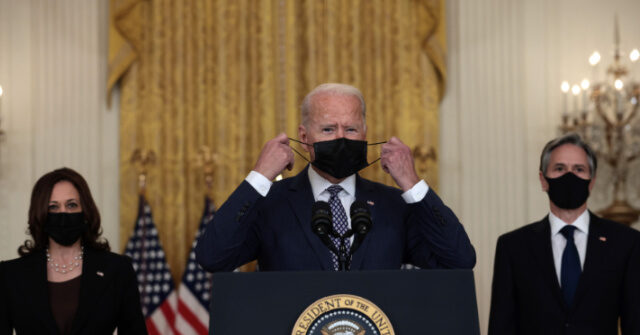President-elect Donald Trump’s transition team is reportedly preparing to investigate the chaotic withdrawal of U.S. troops from Afghanistan, a move that has sparked considerable interest and discussion. According to sources familiar with these plans, the team is compiling a list of military officers who were involved in the decision-making process during the Biden Administration’s withdrawal. They are also considering the establishment of a commission tasked with probing into the events surrounding the withdrawal, particularly highlighting the tragic death of 13 American service members during the process. This investigation would aim to collect detailed information on who was responsible for the military strategies employed and how those tactics were ultimately executed.
The planned commission is described as a serious effort to understand the circumstances of the withdrawal from Afghanistan, which was widely criticized for its abruptness and impact. There are indications that the inquiry may reach as far as determining whether military leaders could face serious allegations such as treason for their roles in the withdrawal. This potential investigation underscores the political ramifications of the withdrawal and reflects an ongoing divide between the political parties regarding who holds responsibility for the incident. Individuals associated with the transition have emphasized the importance and seriousness of this investigation, indicating a desire to hold accountable those they perceive as having failed in their duties.
NBC News reported that interest in a formal investigation gained traction following Trump’s public acknowledgment of the fallen service members. This acknowledgment came after his visit to Arlington National Cemetery, where he participated in a wreath-laying ceremony to honor the 13 servicemen and women killed amidst the withdrawal chaos. While many families of the victims expressed their gratitude towards Trump for this demonstration of respect, some have criticized Vice President Kamala Harris, accusing her of downplaying the significance of Trump’s visit by referring to it as a “political stunt.” This argument illustrates the contentious nature of U.S. politics, especially in the context of tragic events.
The backdrop of this scenario involves a complex history of negotiations between the U.S. and the Taliban, with Trump indicating that he had initiated talks with the group during his presidency. He reached a preliminary deal, yet it remained incomplete when he left office in January 2021. In contrast, President Biden’s decision to withdraw all troops from Afghanistan was made despite warnings from military advisors about the significant risks of such a move. Biden’s withdrawal plan culminated in the Taliban’s rapid takeover of Kabul in August 2021, leading to chaotic scenes as U.S. citizens, foreign nationals, and vulnerable Afghan allies rushed to flee the country, resulting in a frustrating and dangerous evacuation for many.
In the aftermath of the withdrawal, Trump characterized the event as a catastrophic failure and a significant stain on America’s global image, referring to it as “the most embarrassing, incompetent, and humiliating event in the history of the United States.” His strong criticism reflects a broader sentiment among many Americans who were disappointed and frustrated with the handling of the withdrawal and the conditions surrounding the U.S. troop exit. The fallout from this situation continues to resonate through political discourse, with differing narratives emerging regarding responsibility and accountability for the operational decisions made.
As discussions about the commission and potential investigations proceed, it’s clear that the events in Afghanistan under Biden’s leadership will continue to be a focal point of contention in U.S. politics. The investigation may not only seek to reevaluate military strategies but also aims to reshape public perception surrounding the treatment of service members and their families. As political leaders navigate the sensitive landscape following the withdrawal, the emphasis on accountability and transparency remains high, with both sides of the aisle eager to assert their narratives regarding the unfolding crisis. The implications of these discussions are likely to influence U.S. military policy and foreign relations moving forward, demanding careful examination of past decisions to prevent future missteps on the world stage.

